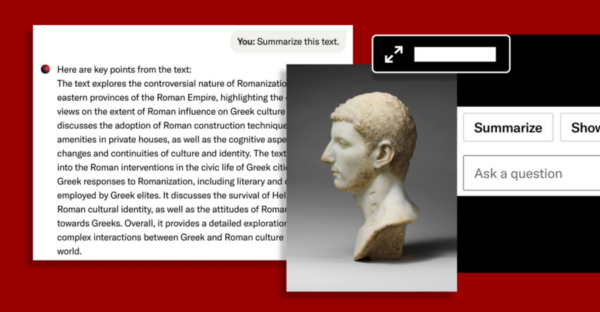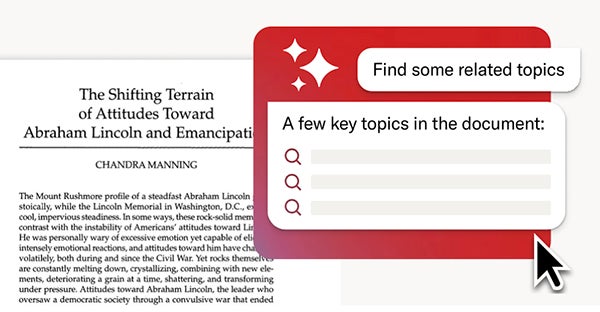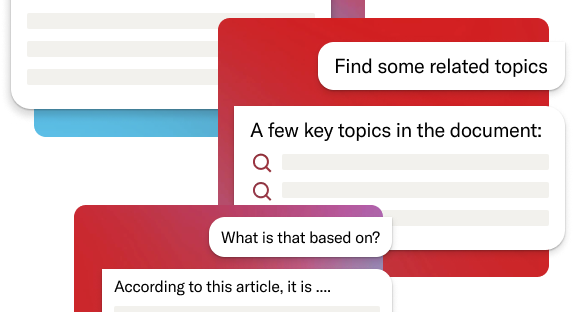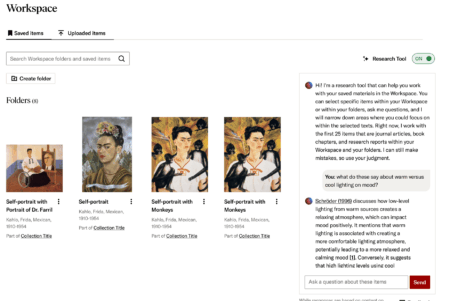Archive
A new chapter for JSTOR’s AI research tool: Reflections on community engagement, insights from ALA, and what’s next
Enhancing research accessibility for students
Without compromising academic integrity, JSTOR’s AI research tool benefits both instructors and learners and overcomes the skepticism of AI. Embracing AI and other emerging technologies for efficient and accessible research and teaching Education is rapidly evolving with the expansion of AI across the globe, and this especially impacts… Read More

Unlocking research with JSTOR’s interactive tool: How to ask questions and get more from your readings
Platform features
JSTOR provides robust, sustainable platform features designed to meet the evolving needs of scholars, educators, and students. Our tools integrate seamlessly with our vast digital library of journals, books, images, primary sources, and now, audio and video—ensuring that knowledge is both accessible and actionable. New and enhanced features for teaching… Read More
Bridging access
Research involves more than direct translation, requiring adaptation to new cultural norms. JSTOR’s AI research tool promotes equity by giving students from various backgrounds a platform to explore and develop their perspectives. Electronic resources librarian and student finds AI and other emerging technologies essential to broadly accessible research… Read More

Your time constraints are our concern
Bess Wilhelms, a middle school history teacher at George Rogers Clark Elementary School Public school educators often juggle multiple roles beyond subject matter expert. Bess Wilhelms currently teaches US history, world history, and civics at George Rogers Clark Elementary School in Chicago. Previously, she taught high school… Read More

Pioneering the future of digital collections stewardship: Highlights from Charleston 2024
JSTOR’s AI research tool
Get to know our AI research tool, part of a growing suite of AI-enabled features on JSTOR designed to enhance—not replace—the research process. Developed in collaboration with our community and offered free to JSTOR-participating institutions, the tool helps users engage more deeply with JSTOR’s trusted corpus. Have questions, comments,… Read More




